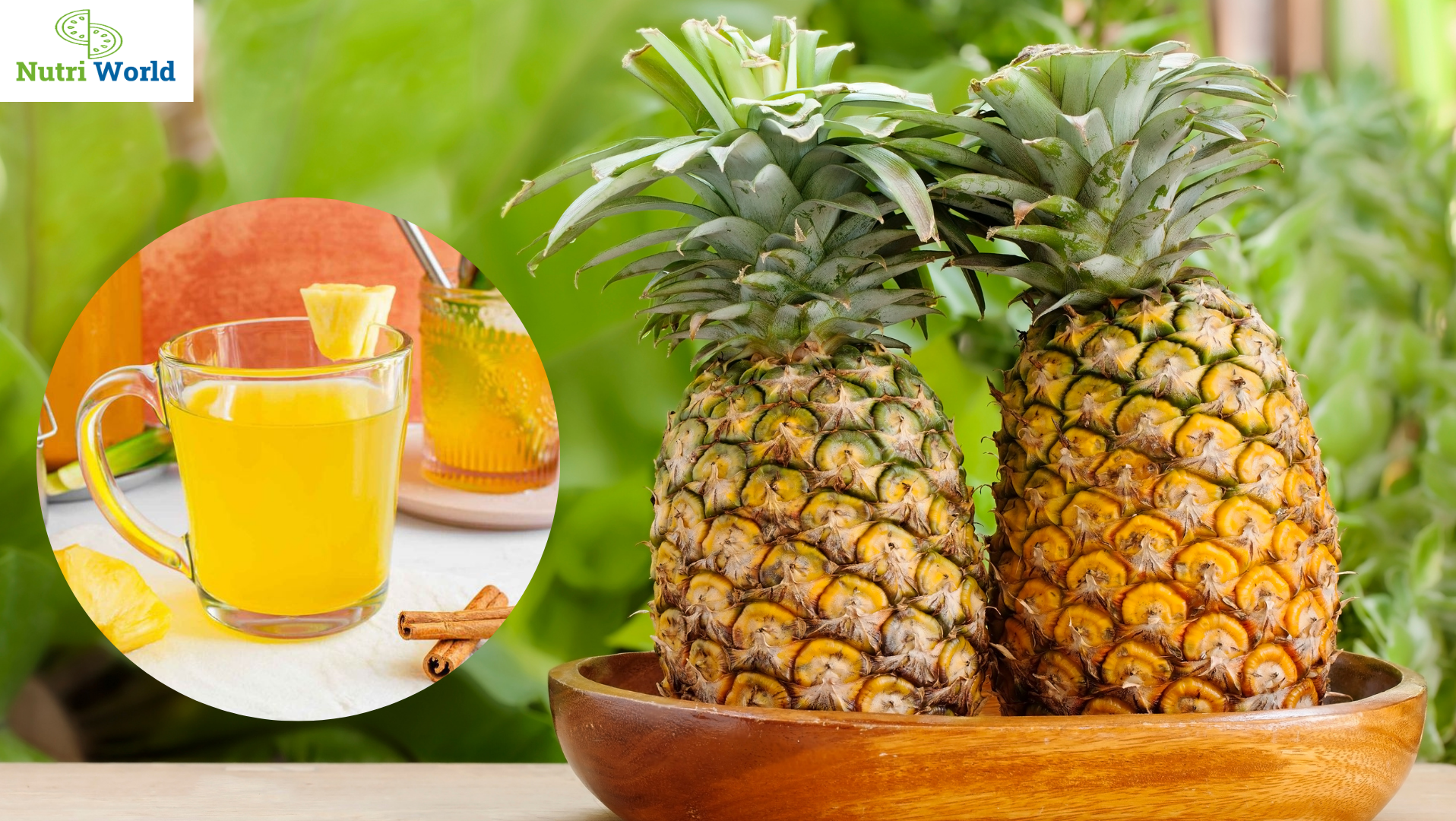Pineapple tea isn’t just a tropical treat—it’s a powerhouse of health benefits wrapped in a refreshing sip. As the summer heat intensifies, this fruity herbal infusion has found its way into the mugs and glasses of health-conscious individuals across the globe. But beyond its vibrant taste lies a range of wellness perks that make pineapple tea more than just a seasonal delight.

What is Pineapple Tea?
Pineapple tea is a herbal infusion made primarily from the skin and core of the pineapple, which are typically discarded. These parts are simmered in water, often with added ingredients like ginger, cinnamon, or mint to enhance flavor and boost its health benefits. Pineapple tea can be enjoyed hot or chilled, making it a versatile drink year-round, but especially refreshing during summer.
6 Health Benefits of Pineapple Tea
1. Boosts Immunity
Pineapple contains high levels of vitamin C, a crucial antioxidant that helps support the immune system. Regular consumption of pineapple tea may help reduce the frequency of colds, infections, and inflammatory conditions.
2. Supports Digestion
Pineapple is rich in bromelain, a digestive enzyme that breaks down protein and promotes smoother digestion. Drinking pineapple tea after meals can reduce bloating, gas, and indigestion, especially for those with slower metabolism during summer.
3. Reduces Inflammation
The bromelain in pineapple tea has anti-inflammatory properties, which may help relieve conditions such as arthritis, sinusitis, and muscle soreness. Regular intake may also assist in quicker recovery post workouts.
4. Aids Weight Management
Low in calories but rich in enzymes, pineapple tea promotes fat metabolism and supports detoxification. Drinking pineapple tea between meals can curb cravings and keep you hydrated without adding empty calories.
5. Supports Heart Health
Pineapple is a good source of potassium and antioxidants that may lower blood pressure and reduce the risk of heart disease. Pineapple tea’s natural compounds help combat oxidative stress and support better circulation.
6. Detoxifies the Body
Pineapple tea acts as a natural diuretic, helping flush out toxins, reduce water retention, and cleanse the liver. It’s a gentle yet effective way to support kidney and liver function, especially in the heat.
How to Make Pineapple Tea at Home
Here’s a simple recipe you can try:
Ingredients:
- Skin and core of 1 ripe pineapple
- 1 inch ginger (optional)
- 1 cinnamon stick (optional)
- 5 cups water
- Honey or lemon (to taste)
Instructions:
- Wash the pineapple thoroughly and peel it.
- Add the peels, core, and optional ingredients to a pot with water.
- Bring to a boil and simmer for 25-30 minutes.
- Strain the liquid and let it cool.
- Serve hot or over ice with a dash of lemon or honey.
Pineapple tea acts as a natural diuretic, helping flush out toxins, reduce water retention, and cleanse the liver. It’s a gentle yet effective way to support kidney and liver function, especially in the heat.
Final Thoughts:
Pineapple tea is more than just a tasty way to stay cool—it’s a functional drink loaded with health benefits. From improving digestion and immunity to supporting weight loss and detox, this tropical tea is a must-try for anyone looking to stay healthy and hydrated this summer.
Whether you’re sipping it as a midday refresher or using it as part of a wellness routine, pineapple tea proves that delicious food can be nutritious too.
Frequently Asked Questions (FAQs)
Q1: Can I drink pineapple tea every day?
A: Yes, pineapple tea is safe for daily consumption in moderate amounts. However, people with pineapple allergies or those on certain medications should consult a doctor.
Q2: Is pineapple tea good for diabetes?
A: Pineapple tea made without sugar can be consumed in moderation. It contains natural compounds that may aid insulin sensitivity, but diabetic patients should monitor their blood sugar levels and consult their healthcare provider.
Q3: Can pineapple tea help with bloating?
A: Absolutely. The bromelain enzyme in pineapple helps break down protein and reduce bloating, making it an excellent natural remedy for digestive discomfort.
Q4: Is pineapple tea caffeine-free?
A: Yes, pineapple tea is naturally caffeine-free, making it a perfect alternative for those looking to reduce caffeine intake.
Q5: How long can I store pineapple tea?
A: You can store pineapple tea in the refrigerator for up to 3 days. Always keep it in a sealed container and consume it fresh for the best flavor and benefits.

Hi, I’m Dietitian Dipanwita Saha, A Clinical Dietitian & Nutripreneur and The Founder & Director of Nutri World. I believe healthy eating should be enjoyable, balanced, and free from guilt—not about strict rules or cutting out your favorite foods. My passion lies in helping people heal their relationship with food, especially those dealing with disordered eating. If you’re looking for a supportive, judgment-free space to nourish your body and mind, I’m here to help—let’s make food feel good again.





